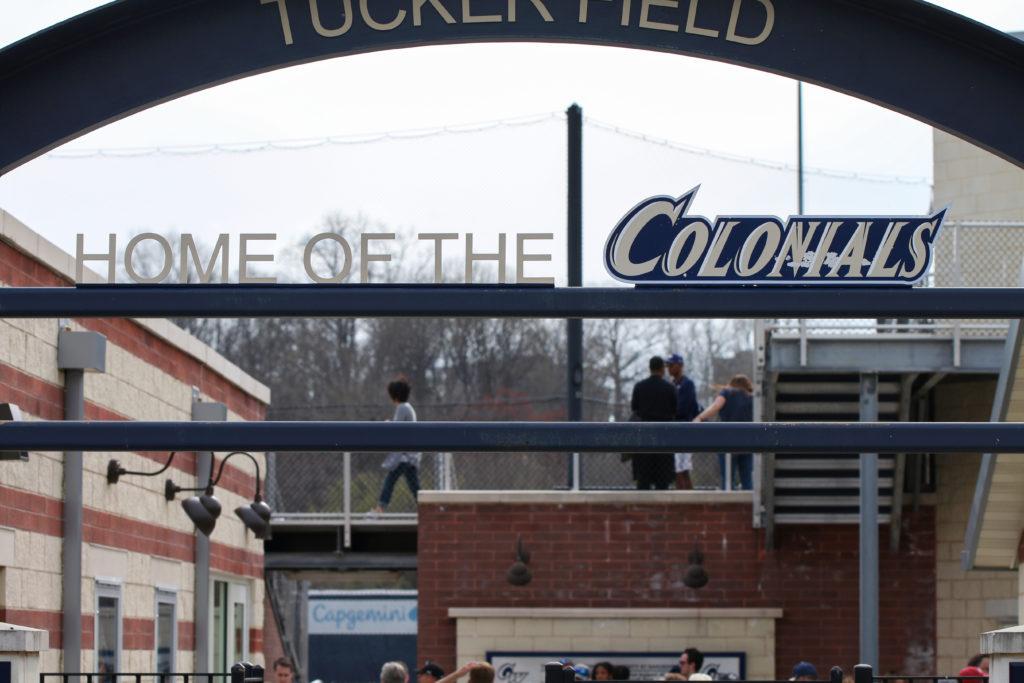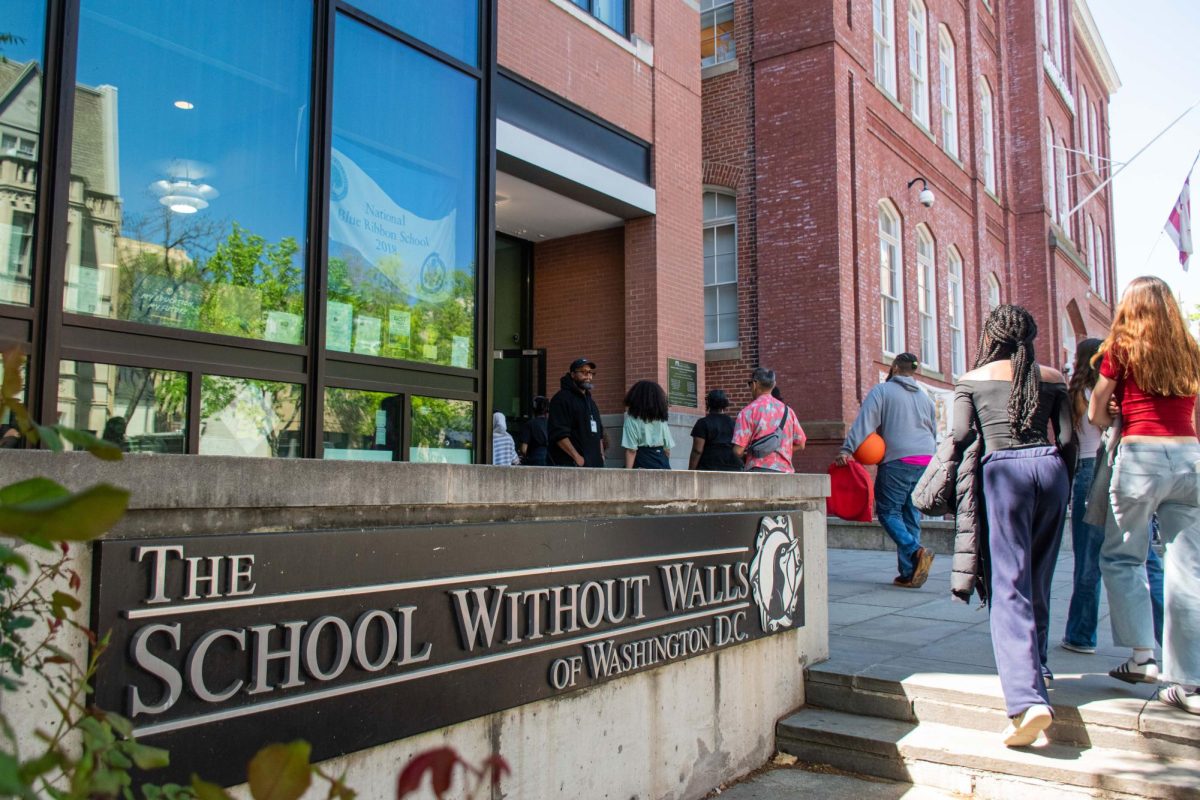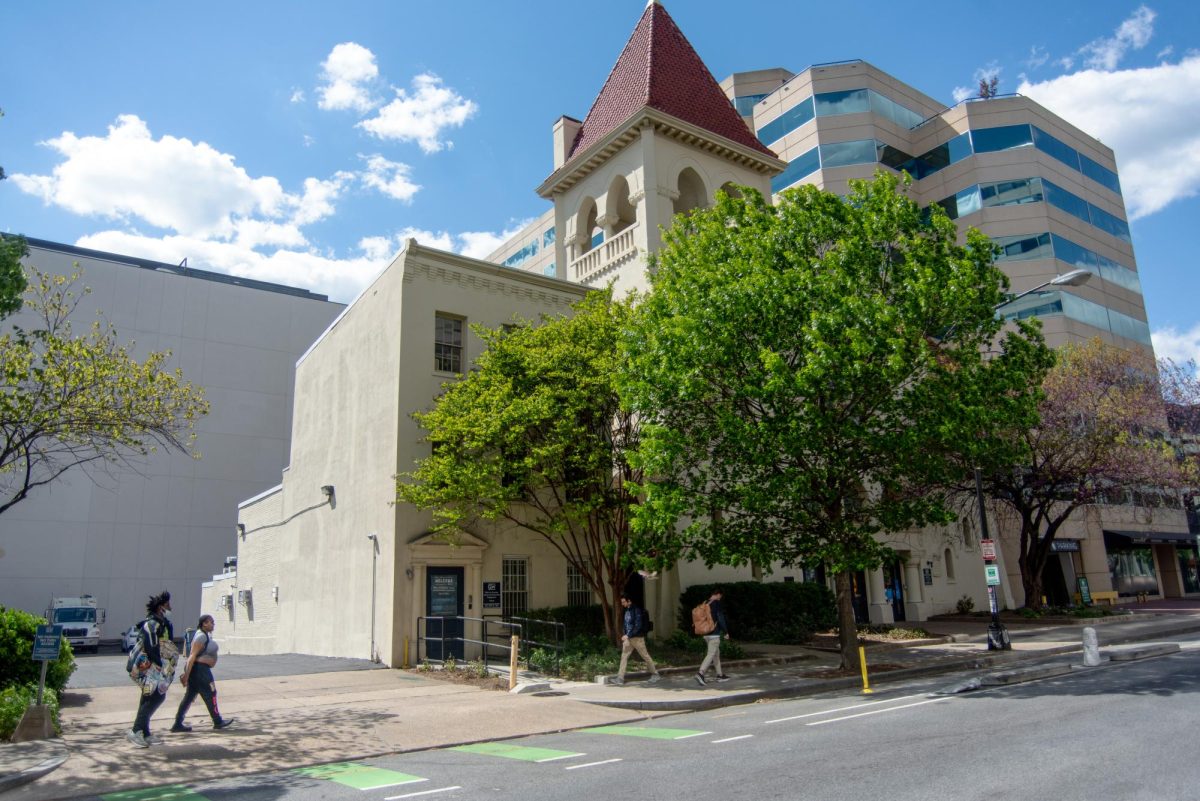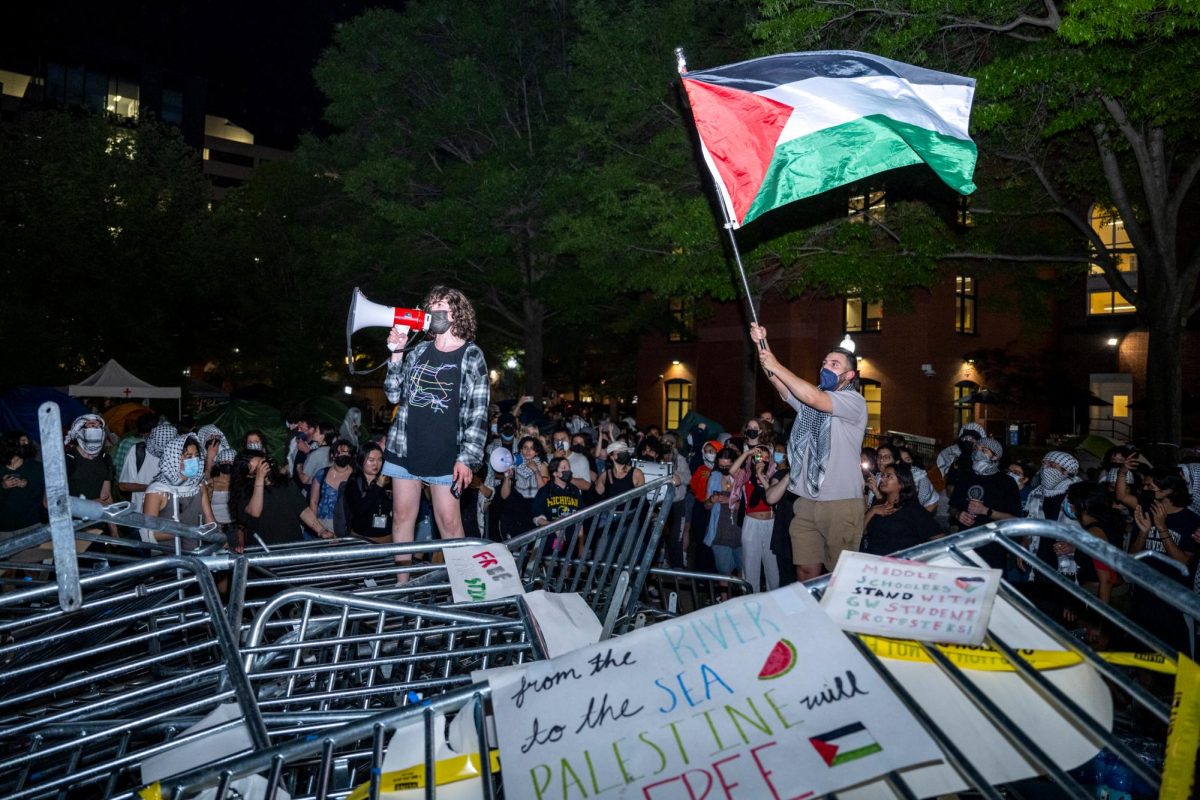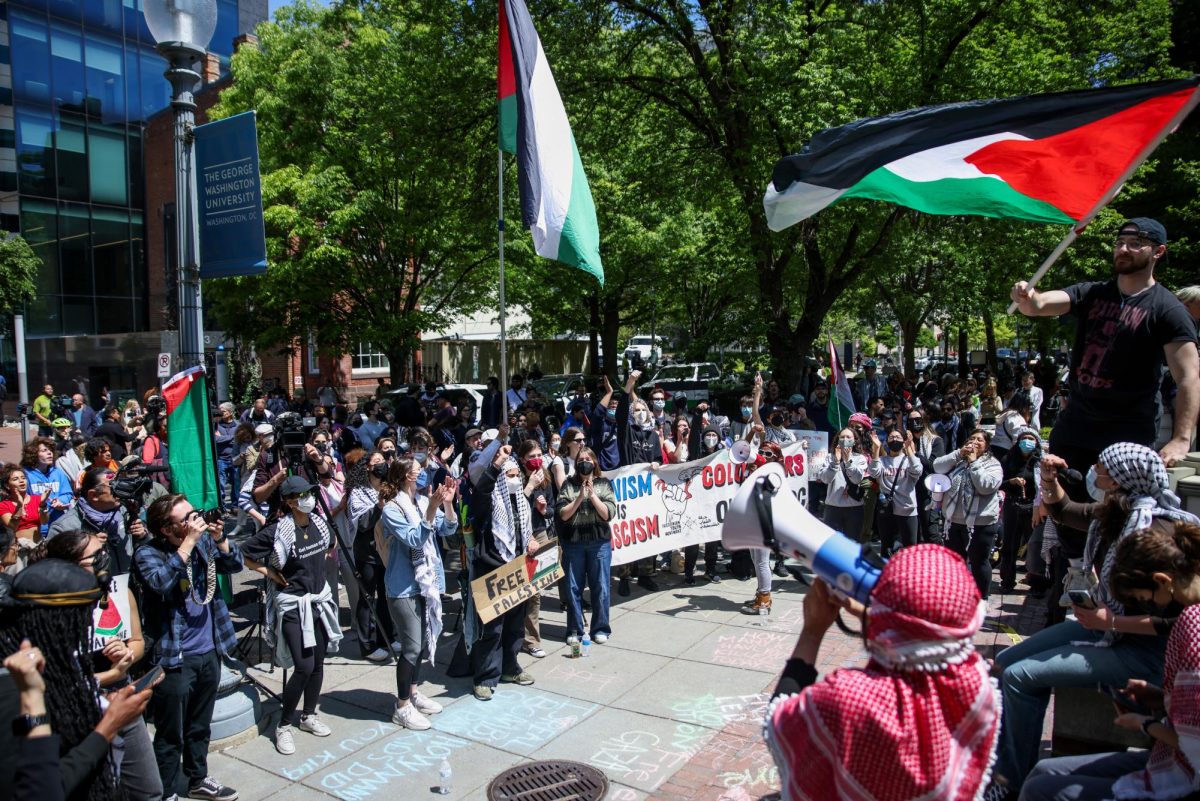One week after officials announced GW will drop the nearly century-old Colonials moniker, advocates for the change welcomed the decision and potential alternative nicknames while others derided the move with demands that the moniker stay.
The commitment to replace the moniker by the 2023-24 academic year sparked controversy across social media, where users offered up new nicknames like the Hippos, River Horses or Revolutionaries, as national news coverage from The Washington Post and Fox News further fueled nationwide discourse. More than half a dozen students, alumni and faculty members said the change was the “right decision” after years of student advocacy to replace the moniker due to its connections to slavery, colonialism and racial discrimination.
When alumna Georgie Britcher joined Students for Indigenous and Native American Rights as a freshman in 2018, she also joined a growing movement committed to replacing GW’s nearly century-old Colonials moniker, a nickname the student organization deemed “extremely offensive.” Four years later – after leading town hall discussions, signing petitions and meeting with administrators – Britcher said she was moved to tears after learning GW will retire the Colonials moniker.
The decision comes nearly two years after officials appointed Britcher and 14 other students, alumni and faculty members to the Special Committee on the Colonials Moniker to examine the historical context of the nickname.
“It was the first time I felt like ‘Oh, my gosh, this work was not for nothing,’” Britcher said. “All of the tears, all of the microaggressions, all of the straight-up racism, all of the straight-up erasure – it was not for nothing.”
The Colonials moniker was slowly losing visibility on campus prior to last week’s retirement of the moniker, which officials wiped from various campus spaces and events. Protests against the moniker gained momentum in 2018 when a student-led petition that demanded officials abandon the Colonials moniker garnered nearly 550 signatures.
The Student Association held a referendum on the moniker in spring 2019, finding about 54 percent of students in favor of its removal. In response, former SA President SJ Matthews issued an executive order in September 2019 establishing the student-run Colonial Moniker Task Force to research possible replacements for the moniker.
Britcher, who has Cayuga and Iroqouis heritage, served as the only Indigenous student on the Special Committee on the Colonials Moniker – a group created nearly two years ago. She said she felt pressured to represent every Indigenous students’ perspective in her sole testimonies.
Britcher said she faced assumptions and micro-aggressions from the committee, like being interrupted while speaking about her personal experiences as an Indigenous student at GW.
Britcher said she met several other Indigenous students at GW by bonding over discussions about the University’s roots in colonialism or protesting for the moniker’s retirement. She said she hopes Indigenous students in the future can graduate from GW without having the Colonials moniker “stand in their way.”
“I am glad I was able to meet those people so we can make that change and so we can ensure that there can be a Native community without that feeling that we have to be brought together by something of hate, but rather by love,” Britcher said.
André Gonzales – a 2020 graduate and the chair of the student-led Colonial Moniker Task Force, a committee dedicated to researching possible replacements for the moniker – said it was a “beautiful” and “emotional” day when he heard the University would retire the Colonials moniker. He said he hopes the change will lead to a larger discussion about how to make GW more inclusive and accessible to all identities.
“I think that’s really where the change is,” Gonzales said. “It’s an institution, it’s a university saying, ‘You know what, we’re going to make this a community that we can all kind of rally around.’”
Gonzales, who is affiliated with the Comanche and Genízaro tribes, said the conversations among students, faculty and administrators during the evaluation process were “confrontational” and “emotionally draining” for the Indigenous students involved in the discussions.
He said due to the student body’s low representation of Indigenous identities, he was concerned the administration wouldn’t have many opportunities to discuss the moniker with an Indigenous student, causing him to be more honest and direct about his stance.
“At times it required having to be more upfront or confrontational, more blunt in how we talked about things or in how we address certain things,” Gonzales said.
University spokesperson Tim Pierce said the task force and the special committee acknowledged all perspectives in their discussions concerning the Colonials moniker.
“The Special Committee represented GW’s diverse constituencies, but also considered all viewpoints before making its recommendation,” Pierce said in an email. “The Task Force on Naming approached its work with both intellectual rigor and deep compassion for the individuals who will be impacted by the university’s decisions on name change requests.”
Ashley Le, the SA president during the 2018-19 academic year, said the debate about the moniker started as a small conversation among students before she was elected and gathered momentum as more students began to recognize it as an issue. She said she partnered with other student leaders to create the first “Hippo Day” – a day of music, food and prizes – in an attempt to move attention away from the Colonials moniker.
Le said the debate surrounding the moniker needs to acknowledge the cultures that the “Colonials” label has offended due to its discriminatory connections.
“It’s speaking about the experience of a group of people who have been hurt and persecuted through years of American existence, and yet the namesake of our mascot brought up even more pain and it should not be a small conversation anymore,” Le said. “It should not be a conversation between a small group of students anymore.”
Le said she hopes the official retirement of the moniker serves as an apology to Indigenous students who felt misrepresented by the Colonial nickname.
“I hope that it will say to students who have long felt like they don’t belong, that they felt that the mascot name of the University is offensive to the history of where they come from – I hope that they will take this as an apology,” Le said.
David Silverman, a professor of history specializing in colonial American and Native American history and a member of the Special Committee on the Colonials Moniker, wrote a report on the history of colonialism in the United States as part of his role on the committee to provide a historical perspective to the conversation surrounding the moniker.
Silverman said the reality of colonial American history, which was often romanticized during the early 20th century when the moniker was adopted, was that it included the loss of land, lives and autonomy of Indigenous people and the transatlantic slave trade – “one of the most significant human rights disasters in world history.”
“The perspective of our society has moved from one that was, quite frankly, grounded in white supremacy to one that is now, we hope, far more inclusive and critical of the history that produced white supremacy,” he said.
While student sentiment in response to the announcement has been largely positive, some student organizations have come out in firm opposition to the upcoming name change.
GW College Republicans released a statement on its Instagram account where members said they were “extremely disappointed” about the moniker change.
Jackson Hoppe, a rising sophomore and the director of public relations for GW College Republicans, said the removal of the moniker erases the memory of those who fought for the country, and the Colonials moniker represents those “who fought against colonialism.”
Hoppe said the organization is concerned that this decision could “snowball” into a University name change, which members oppose. Officials have clarified on multiple occasions that they will not change the name of the University.
“We believe that the moniker itself, we don’t believe that it upholds colonialism, we believe it’s meant to honor the colonists in the Revolutionary War who fought in the creation of our nation against tyrannical colonialism,” he said.


